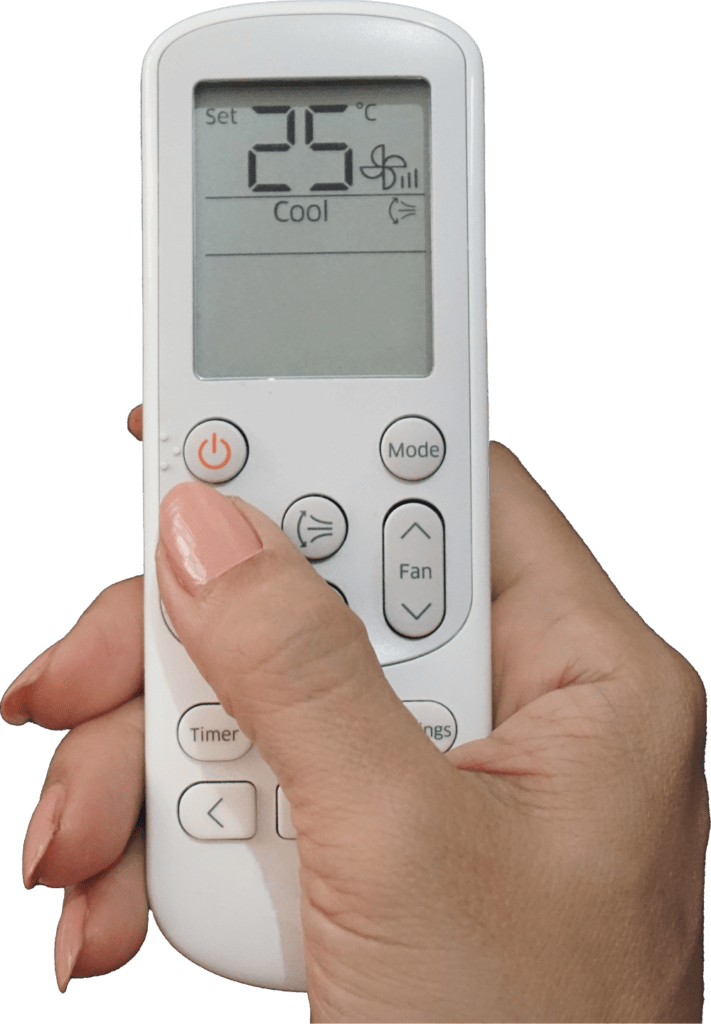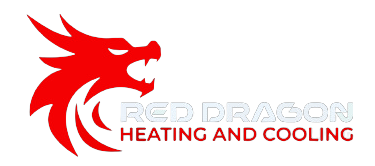- 518.348.9000
- [email protected]
- 117 Van Rd Gloversville,NY 12078
When Your All-in-One Comfort System Needs a Hand: The Ultimate Guide to Heat Pump Repair for Cooling Issues in Fulton and Montgomery Counties
Heat pumps are the versatile workhorses of the HVAC world, providing both efficient heating in the winter and refreshing cooling in the summer. For homeowners in Gloversville, Johnstown, Broadalbin, Mayfield, Fonda, Amsterdam, and Northville, a heat pump is a smart investment in year-round comfort. But what happens when your reliable system stops cooling on a sweltering summer day? When your all-in-one comfort solution isn’t providing the cool relief you need, it’s time to call the experts. At Red Dragon Heating and Cooling, we specialize in heat pump repair, and we’ve created this comprehensive guide to help you understand common cooling problems and know when to seek professional help.
Understanding How a Heat Pump Cools Your Home
Before diving into repairs, it’s helpful to understand how a heat pump functions in cooling mode. It works exactly like a standard central air conditioner. The process involves a continuous cycle of refrigerant moving between an indoor unit (the evaporator coil) and an outdoor unit (the condenser coil).
- Heat Absorption: The refrigerant, in a cold, liquid state, flows through the evaporator coil inside your home. The indoor blower fan pulls warm, humid air from your house across the coil. The refrigerant absorbs the heat from the air, causing the refrigerant to turn into a gas.
- Compression: The now gaseous refrigerant travels to the outdoor compressor. The compressor pressurizes the gas, which significantly increases its temperature.
- Heat Release: This hot, high-pressure gas then moves to the outdoor condenser coil. A large fan in the outdoor unit blows ambient air across the coil. The heat from the refrigerant is transferred to the outside air, and the refrigerant cools down, turning back into a liquid.
- Expansion: The cooled liquid refrigerant then passes through an expansion valve, which lowers its pressure and temperature, preparing it to start the cycle all over again.
When any part of this intricate process is disrupted, your heat pump’s ability to cool your home is compromised.
Common Heat Pump Cooling Problems and Their Causes
If your heat pump isn’t cooling effectively, it could be due to a variety of issues. Here are some of the most common problems we encounter at Red Dragon Heating and Cooling:
- Refrigerant Leaks: This is one of the most frequent culprits. A low refrigerant level means the system cannot absorb and release heat effectively. Signs include hissing noises, ice buildup on the coils, and a system that runs constantly but doesn’t cool.
- Dirty Coils: Both the indoor evaporator coil and the outdoor condenser coil can become caked with dirt, dust, and debris. This layer of grime acts as an insulator, preventing the coils from effectively absorbing or releasing heat.
- Clogged Air Filter: A dirty air filter restricts airflow across the indoor evaporator coil. This can cause the coil to freeze up and can severely limit the system’s cooling capacity.
- Fan Malfunctions: Problems with either the indoor blower fan or the outdoor condenser fan will disrupt the heat transfer process. A faulty motor, worn belt, or bad capacitor can cause the fan to stop working.
- Compressor Issues: The compressor is the heart of the system. If it fails, the refrigerant cycle stops, and no cooling can occur. Compressor failure is a serious issue that requires professional diagnosis.
- Faulty Reversing Valve: The reversing valve is the component that switches the heat pump between heating and cooling modes. If it gets stuck in the heating position, it won’t be able to cool your home.
- Thermostat Problems: Sometimes the issue is as simple as a miscalibrated or faulty thermostat that isn’t correctly signaling the heat pump to start the cooling cycle.
- Clogged Condensate Drain: As your heat pump cools, it also dehumidifies the air, producing condensation. This water is supposed to drain away. If the drain line becomes clogged, it can trigger a safety switch that shuts down the system to prevent water damage.
The Red Dragon Heat Pump Repair Process
When you call Red Dragon Heating and Cooling for a heat pump repair, you can expect a thorough and professional service designed to get your system back up and running as quickly as possible.
- Comprehensive Diagnosis: Our certified technicians will perform a complete diagnostic check of your entire system. We don’t just look for the obvious problem; we investigate the root cause to prevent future breakdowns.
- Clear Explanation and Upfront Pricing: Once we’ve identified the problem, we will explain it to you in clear, easy-to-understand terms. We will provide you with a detailed, upfront quote for the repair, so there are no surprises.
- Professional Repair: With your approval, our technicians will perform the repair using high-quality parts and industry-best practices. Our service vehicles are fully stocked, allowing us to complete most repairs in a single visit.
- System Testing: After the repair is complete, we will thoroughly test your heat pump in cooling mode to ensure it is operating at peak performance and efficiency.
- Maintenance Recommendations: We will provide you with recommendations for preventing future problems and keeping your heat pump in top condition.
Serving Our Communities: Expert Heat Pump Repair Across Fulton and Montgomery Counties
Red Dragon Heating and Cooling is deeply rooted in the communities we serve. We understand the local climate and the importance of a reliable cooling system during our warm, humid summers.
Gloversville and Johnstown: Our Home Base
As the heart of our service area, we are dedicated to providing the residents of Gloversville and Johnstown with prompt and reliable heat pump repair. Whether you’re near the historic Gloversville Public Library or enjoying the heritage of the Johnson Hall State Historic Site, you can count on us to restore your comfort quickly.
Broadalbin: Keeping Historic and Modern Homes Cool
From the charming Historic Hotel Broadalbin to the modern homes dotting the landscape, we provide expert heat pump repair services. After a day on the water from the Broadalbin State Boat Launch, coming home to a cool house is a must, and we’re here to make sure that happens.
Mayfield: Lakeside Comfort Restored
Life by the Great Sacandaga Lake is a summer dream, but not when your heat pump fails. We provide fast and effective repairs for Mayfield residents, ensuring your home remains a cool oasis after a day at the Mayfield Town Beach or exploring the Adirondack Park Foothills.
Fonda: Upholding a Tradition of Comfort
In a village as rich in history as Fonda, with landmarks like the Old Montgomery County Courthouse, reliable service is a tradition we uphold. We provide expert heat pump repair to ensure your home remains a comfortable sanctuary.
Amsterdam: Diverse Homes, Consistent Cooling
Amsterdam’s diverse architecture, from the Amsterdam Castle to modern suburban homes, requires a versatile approach to HVAC repair. Our technicians have the expertise to diagnose and repair any heat pump issue, ensuring you stay cool after a walk across the Mohawk Valley Gateway Overlook.
Northville: Your Gateway to a Cool Home
As the gateway to the Adirondacks, Northville residents know how to enjoy the summer. When your heat pump needs repair, we’ll be there quickly so you can get back to enjoying everything from the Northville-Placid Trail to Waterfront Park without worrying about a hot house.
DIY Troubleshooting vs. Professional Repair
While many heat pump issues require professional attention, there are a few simple troubleshooting steps you can take before calling for service:
- Check Your Thermostat: Ensure it’s set to “cool” and the temperature is set lower than the current room temperature.
- Inspect Your Air Filter: A clogged filter is a common cause of cooling problems. If it’s dirty, replace it.
- Check Your Circuit Breakers: Your heat pump has two breakers—one for the indoor unit and one for the outdoor unit. Make sure neither has been tripped.
- Clear the Outdoor Unit: Ensure the area around your outdoor condenser is free of leaves, grass, and other debris that could restrict airflow.
If these steps don’t solve the problem, it’s time to call a professional. Attempting to perform complex repairs, especially those involving refrigerant or electrical components, can be dangerous and can cause further damage to your system.
The Importance of Timely Repairs
Ignoring a minor cooling issue with your heat pump can lead to much bigger and more expensive problems down the road. A small refrigerant leak, for example, can eventually lead to compressor failure, which is one of the most expensive repairs. Addressing problems promptly not only restores your comfort but also protects your investment and prevents a minor inconvenience from turning into a major system failure.
The Red Dragon Promise: Your Satisfaction Guaranteed
At Red Dragon Heating and Cooling, we are committed to your satisfaction. We stand behind our work with a comprehensive guarantee. Our technicians are not only skilled and certified but also courteous and respectful of your home. We pride ourselves on our honesty and integrity, and we will never try to sell you a service or part you don’t need. When you choose us for your heat pump repair, you are choosing a company that values its customers and its community.
Frequently Asked Questions About Heat Pump Cooling Repair
Q: Why is my heat pump blowing warm air in cooling mode?
A: This could be due to several issues, including a low refrigerant charge, a dirty outdoor coil, or a problem with the reversing valve.
Q: Why is there ice on my heat pump coils in the summer?
A: Ice on the indoor evaporator coil is usually a sign of restricted airflow (like a dirty filter) or a low refrigerant charge. Both issues require professional attention.
Q: How much does a heat pump repair cost?
A: The cost varies widely depending on the nature of the problem. A simple fix like replacing a capacitor will be much less expensive than replacing a compressor motor. We always provide upfront pricing before any work begins.
Q: Is it better to repair or replace my heat pump?
A: This depends on the age of your system, the cost of the repair, and the efficiency of your current unit. If your heat pump is over 10-15 years old and requires a major repair, it may be more cost-effective to invest in a new, more efficient system.
Don’t Sweat It: Contact Red Dragon Today
If your heat pump isn’t keeping you cool this summer, don’t suffer through the heat. Contact Red Dragon Heating and Cooling today. Our team of expert technicians is ready to diagnose and repair your system, restoring comfort to your home quickly and efficiently. We are your local, trusted experts for all things HVAC in Fulton and Montgomery Counties.
In-Depth Diagnostics: The Red Dragon Approach
When your heat pump stops cooling, a superficial glance isn’t enough. A true professional understands that the symptom—a lack of cool air—can have many different root causes. At Red Dragon Heating and Cooling, our diagnostic process is a deep dive into the health of your entire system.
Our technicians use a multi-step approach:
- Customer Interview: We start by listening to you. When did the problem start? Have you heard any strange noises? Is the unit running constantly? Your observations provide valuable clues.
- Thermostat and Electrical Check: We first rule out the simple stuff. We verify the thermostat settings and test the electrical connections, including breakers, fuses, and wiring, to ensure the unit is receiving the proper power and commands.
- Airflow Analysis: We inspect the air filter and the indoor blower wheel. Restricted airflow is a very common and often overlooked cause of cooling failure. We measure the airflow to ensure it meets the manufacturer’s specifications.
- Refrigerant System Analysis: This is the core of the cooling process. Using a set of digital gauges, we measure the refrigerant pressures (both the high side and the low side). These readings, combined with temperature measurements, tell us a detailed story about what’s happening inside the system. They can indicate a refrigerant leak, an inefficient compressor, or a blockage in the system.
- Component Testing: We systematically test individual components. This includes checking the run capacitors for the compressor and fan motors, testing the fan motors themselves, verifying the function of the reversing valve, and inspecting the compressor’s electrical terminals for any signs of wear or damage.
- Leak Detection: If the pressure readings indicate a low refrigerant charge, we don’t just add more refrigerant (a practice known as “gas and go,” which is unprofessional and illegal). We use advanced tools like electronic leak detectors and ultraviolet dye to find the exact location of the leak. A leak must be repaired before the system can be properly recharged.
The Critical Role of the Compressor
The compressor is the single most important and most expensive component in your heat pump. It’s a powerful motor that is responsible for compressing the refrigerant gas, which is the essential step for releasing heat outside. When a compressor fails, the system is dead in the water.
Compressor failure can be caused by:
- Electrical Problems: A surge, a faulty capacitor, or acid buildup in the system can burn out the compressor’s windings.
- Loss of Refrigerant: A refrigerant leak forces the compressor to work much harder and can cause it to overheat and fail.
- Contaminants in the System: Moisture or other non-condensable gases in the refrigerant lines can lead to the formation of acids that destroy the compressor from the inside out.
Repairing a failed compressor is a major job that involves removing the old compressor, brazing in a new one, and performing a deep system evacuation and recharge. In older systems, the cost of a compressor replacement can be a significant portion of the cost of a whole new system. This is why our technicians will always provide you with a clear comparison of the repair cost versus the cost of a new, more efficient unit, allowing you to make the most informed financial decision.
Why You Can’t Ignore a Leaking Heat Pump
A refrigerant leak is not like a leaky faucet; it’s a serious problem that needs immediate attention. The refrigerant in your heat pump is in a sealed, pressurized loop. If it’s leaking, it means there is a hole or a crack somewhere in the system, often in the copper coils or at a connection point.
Ignoring a leak leads to a cascade of problems:
- Decreased Efficiency: As the refrigerant level drops, your system has to run much longer to cool your home, causing your energy bills to skyrocket.
- Poor Cooling and Dehumidification: The system will lose its ability to effectively cool and remove humidity, leaving your home feeling clammy and uncomfortable.
- Component Damage: A low refrigerant charge puts immense strain on the compressor, which relies on the flow of refrigerant to help cool it. A prolonged leak will inevitably lead to compressor failure.
- Environmental Damage: Refrigerant is a greenhouse gas, and releasing it into the atmosphere is harmful to the environment.
At Red Dragon Heating and Cooling, we take refrigerant leaks very seriously. Our commitment is to find the leak, repair it properly, and then charge the system to the precise manufacturer-specified level, ensuring the long-term health and efficiency of your heat pump.
The Red Dragon Difference: Why Choose a True Professional
In the HVAC world, not all technicians are created equal. When your complex heat pump system needs repair, choosing the right company can mean the difference between a quick, lasting solution and a frustrating cycle of repeat visits and mounting costs. At Red Dragon Heating and Cooling, we have built our reputation on a foundation of expertise, integrity, and an unwavering commitment to our customers in Fulton and Montgomery Counties.
What sets us apart?
- NATE-Certified Technicians: Our technicians are certified by the North American Technician Excellence (NATE) organization, the gold standard for HVAC expertise. This means they have passed rigorous, real-world exams that test their knowledge of complex HVAC systems. They are not just parts-changers; they are true diagnosticians.
- Ongoing Factory Training: Heat pump technology is constantly evolving. We invest heavily in ongoing training for our team, sending them to manufacturer-led courses to ensure they are up-to-date on the latest models, diagnostic procedures, and repair techniques for all major brands.
- Investment in Advanced Tools: You can’t diagnose a modern heat pump with old tools. Our service vehicles are equipped with the latest technology, including digital refrigerant analyzers, micron gauges, and electronic leak detectors. This allows us to diagnose problems with a level of precision that is simply not possible with older analog gauges.
- A Commitment to “Why”: We don’t just tell you what is broken; we explain why it broke. Was the compressor failure caused by a long-term refrigerant leak? Did the fan motor fail because of a weak capacitor that should have been caught during maintenance? By understanding the root cause, we can help you prevent the same problem from happening again.
- Transparent, Upfront Pricing: We believe in honest communication. After our diagnosis, you will receive a clear, detailed quote for the repair. There are no hidden fees or surprise charges. You approve the price before any work begins.
- Well-Stocked Vehicles: We know that your time is valuable and you want your comfort restored as quickly as possible. Our service vans are stocked with a wide inventory of the most common universal and manufacturer-specific parts, allowing us to complete the vast majority of repairs in a single visit.
Choosing Red Dragon means choosing peace of mind. It means knowing that the technician arriving at your door is a highly skilled professional who will treat your home with respect and fix your system correctly the first time.
WHAT WE DO
Expert HVAC Care, Always.


Residential Installations
Trust us to transform your space into a haven of perfect climate control with our expert HVAC installations.

Commercial Installations
Trust us to transform your space into a haven of perfect climate control with our expert HVAC installations.

Thermostat Installations
Trust us to transform your space into a haven of perfect climate control with our expert HVAC installations.

Air Quality Solutions
Trust us to transform your space into a haven of perfect climate control with our expert HVAC installations.
